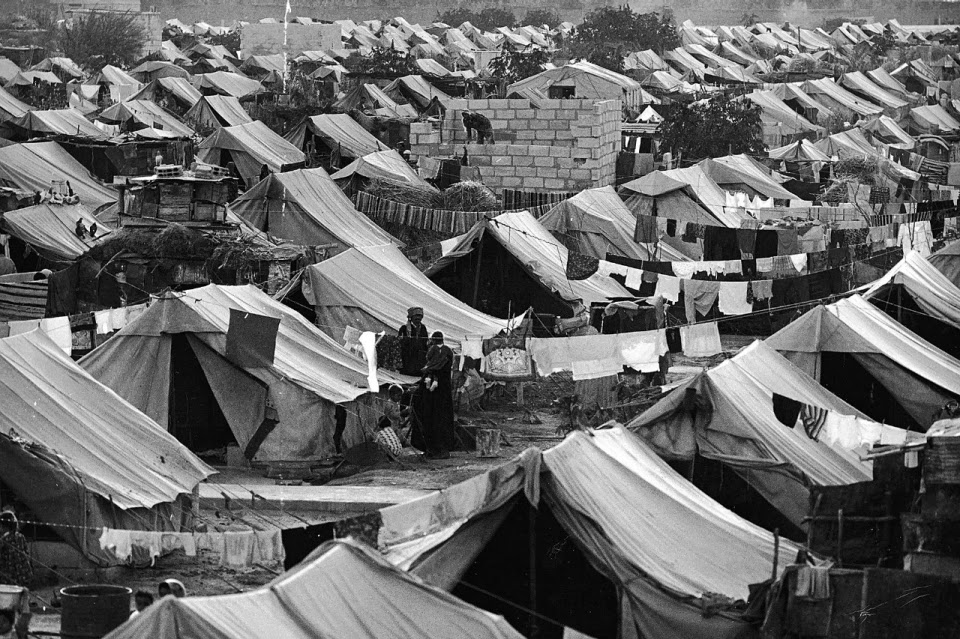the right of all peoples and nations freely to determine their political status and freely pursue their economic, social and cultural development.[1]
The principle of equal rights and self-determination of peoples is considered to have been a general principle of international law arising from common State practice already at the founding of the League of Nations. However, self-determination was first codified in the Charter of the United Nations in 1945, which sets forth the purposes of the United Nations as:
2. To develop friendly relations among nations based on respect for the principle of equal rights and self-determination of peoples, and to take other appropriate measures to strengthen universal peace…[2]
The Charter’s Article 55 stipulates further:
With a view to the creation of conditions of stability and well-being, which are necessary for peaceful and friendly relations among nations based on respect for the principle of equal rights and self-determination of peoples, the United Nations shall promote:
a. higher standards of living, full employment, and conditions of economic and social progress and development;[3]
b. solutions of international economic, social, health, and related problems; and international cultural and educational cooperation; and
c. universal respect for, and observance of, human rights and fundamental freedoms for all without distinction as to race, sex, language, or religion.
Every State has the duty, therefore, through unilateral, bilateral and multilateral action to promote universal respect for, and observance of human rights and fundamental freedoms in accordance with the Charter. Its Article 2.2 clarifies the universal duty of State membership such that:
All Members, in order to ensure to all of them the rights and benefits resulting from membership, shall fulfill in good faith the obligations assumed by them in accordance with the present Charter….
The principle of self-determination has been progressively reaffirmed and legally defined throughout the UN system since its founding.[4] The material significance of self-determination is further elaborated in the Covenants on human rights adopted in 1966.[5] The common Article 1(2) of both the ICCPR and ICESCR sets forth that:
All peoples may, for their own ends, freely dispose of their natural wealth and resources without prejudice to any obligations arising out of international economic cooperation, based upon the principle of mutual benefit, and international law. In no case may a people be deprived of its own means of subsistence.
How concerned persons/communities exercise an effective role in determining the terms by which they realize the human right to adequate housing is also a subject of the inalienable right (see "natural right”) of self-determination. Self-determination is the right of peoples, not of States. It is the State, however, that is the legal personality obliged to ensure the protection, defense, promotion and fulfillment of self-determination as a duty under international public law, as well as the essential legitimizing factor of the State itself.[6]
The UN Committee on the Elimination of Racial Discrimination has provided its General Recommendation XXI on the right to self-determination, which provides a classical interpretation of this over-riding principle for application of the International Convention on the Elimination of All Forms of Racial Discrimination:
4. In respect of the self‑determination of peoples two aspects have to be distinguished. The right to self‑determination of peoples has an internal aspect, that is to say, the rights of all peoples to pursue freely their economic, social and cultural development without outside interference. In that respect there exists a link with the right of every citizen to take part in the conduct of public affairs at any level, as referred to in article 5 (c) of the International Convention on the Elimination of All Forms of Racial Discrimination (ICERD). In consequence, Governments are to represent the whole population without distinction as to race, colour, descent or national or ethnic origin. The external aspect of self‑determination implies that all peoples have the right to determine freely their political status and their place in the international community based upon the principle of equal rights and exemplified by the liberation of peoples from colonialism and by the prohibition to subject peoples to alien subjugation, domination and exploitation.[7]
The concept of, and right to self-determination manifest in a spectrum of types and expressions of effective local control over developments and relations within a community and territory may involve either external or internal self-determination; that is, national independence as in the formal distinction of a self-determination unit with its own internationally recognized borders, a self-determination unit within the internationally recognized borders of a unitary State, or a community’s[8] effective control over developments and relations affecting it as an independent State.[9]
In its General Comment No. 12 on "the right of self-determination of peoples” (1984), The UN Human Rights Committee (HRC) gave its guidance on the corresponding obligations of States, with the following:
1. In accordance with the purposes and principles of the Charter of the United Nations, Article 1 of the International Covenant on Civil and Political Rights recognizes that all peoples have the right of self-determination. The right of self-determination is of particular importance because its realization is an essential condition for the effective guarantee and observance of individual human rights and for the promotion and strengthening of those rights. It is for that reason that States set forth the right of self-determination in a provision of positive law in both Covenants and placed this provision as Article 1 apart from and before all of the other rights in the two Covenants.
2. Article 1 [of ICCPR] enshrines an inalienable right of all peoples as described in its paragraphs 1 and 2. By virtue of that right they freely “determine their political status and freely pursue their economic, social and cultural development.” The article imposes on all States parties corresponding obligations. This right and the corresponding obligations concerning its implementation are interrelated with other provisions of the Covenant and rules of international law.
3. Although the reporting obligations of all States parties include Article 1, only some reports give detailed explanations regarding each of its paragraphs. The Committee has noted that many of them completely ignore Article 1, provide inadequate information in regard to it or confine themselves to a reference to election laws. The Committee considers it highly desirable that States parties’ reports should contain information on each paragraph of Article 1.
4. With regard to paragraph 1 of Article 1, States parties should describe the constitutional and political processes which in practice allow the exercise of this right.
5. Paragraph 2 affirms a particular aspect of the economic content of the right of self-determination, namely the right of peoples, for their own ends, freely to “dispose of their natural wealth and resources without prejudice to any obligations arising out of international economic cooperation, based upon the principle of mutual benefit, and international law. In no case may a people be deprived of its own means of subsistence.” This right entails corresponding duties for all States and the international community. States should indicate any factors or difficulties which prevent the free disposal of their natural wealth and resources contrary to the provisions of this paragraph and to what extent that affects the enjoyment of other rights set forth in the Covenant.
6. Paragraph 3, in the Committee’s opinion, is particularly important in that it imposes specific obligations on States parties, not only in relation to their own peoples but vis-à-vis all peoples which have not been able to exercise or have been deprived of the possibility of exercising their right to self-determination. The general nature of this paragraph is confirmed by its drafting history. It stipulates that “The States Parties to the present Covenant, including those having responsibility for the administration of Non-Self-Governing and Trust Territories, shall promote the realization of the right of self-determination, and shall respect that right, in conformity with the provisions of the Charter of the United Nations.” The obligations exist irrespective of whether a people entitled to self-determination depends on a State party to the Covenant or not. It follows that all States parties to the Covenant should take positive action to facilitate realization of and respect for the right of peoples to self-determination. Such positive action must be consistent with the States’ obligations under the Charter of the United Nations and under international law: in particular, States must refrain from interfering in the internal affairs of other States and thereby adversely affecting the exercise of the right to self-determination. The reports should contain information on the performance of these obligations and the measures taken to that end.
7. In connection with Article 1 of the Covenant, the Committee refers to other international instruments concerning the right of all peoples to self-determination, in particular the Declaration on Principles of International Law concerning Friendly Relations and Co-operation among States in accordance with the Charter of the United Nations, adopted by the General Assembly on 24 October 1970 (General Assembly resolution 2625 (XXV)).
8. The Committee considers that history has proved that the realization of and respect for the right of self-determination of peoples contributes to the establishment of friendly relations and cooperation between States and to strengthening international peace and understanding.
Separation Barrier / Separation Wall / Apartheid Wall / Security Fence / Annexation Wall / Hafrada Wall: See Apartheid Wall
[1] ICCPR and ICESCR, common Article 1(1).
[2] Charter of the United Nations, 26 June 1945, Article 1(2).
[3] Ibid., Chapter IX, "International Economic and Social Co-operation,” Article 55.
[4] For example, see Declaration on the Granting of Independence to Colonial Countries and Peoples (1960), preamble and Article 7; "Permanent sovereignty over natural resources,” General Assembly resolution 1803 (XVII) (1962), preamble and paras. 1–2, 5–7; ICERD, Articles 1 and 5; Declaration on Social Progress and Development (1969), Articles 2, 3 and Part II; Declaration on Principles of International Law (1970), preamble and, esp., "The principle of equal rights and self-determination of peoples”; ECOSOC Declaration on Race and Racial Prejudice (1978), Articles 1, 3, 5 and 9 Declaration on the Right to Development (1986) preamble and Article 1, 6 and 8.
[5] International Covenant on Economic, Social and Cultural Rights, adopted and opened for signature, ratification and accession by General Assembly resolution 2200 A (XXI), 16 December 1966 (entered into force 3 January 1976 in accordance with Article 27); Covenant on Civil and Political Rights, adopted and opened for signature, ratification and accession by General Assembly resolution 2200 A (XXI), 16 December 1966 (entered into force 23 March 1966 1976 in accordance with Article 49).
[6] Consistent with the principle of the Universal Declaration of Human Rights, Article 21, which states that "the will of the people shall be the basis of the authority of government.”
[7] ICERS, op. cit.
[8] While a standard legal definition of nation and people remains a subject of debate, the International Court of Justice has offered criteria for a community, having distinct rights as "a group of persons living in a given country or locality, having a race, religion, language and traditions of their own and united by the identity of race, religion, language and traditions in a sentiment of solidarity, with a view to preserving their traditions, maintaining their form of worship, insuring the instruction and upbringing of their children in accordance with the spirit and traditions of their race and rendering mutual assistance to each other,” Permanent Court of International Justice, The Greco-Bulgarian "Communities” Advisory Opinion No. 17, 13 July 1939 (Leyden: Sijthoff, 1930), 21.
[9] For a comprehensive consideration of the human right of self-determination and its applications, see Hurst Hannum. Autonomy, Sovereignty, and Self-Determination: The Accommodation of Conflicting Rights (Philadelphia: University of Pennsylvania Press, 1996).



